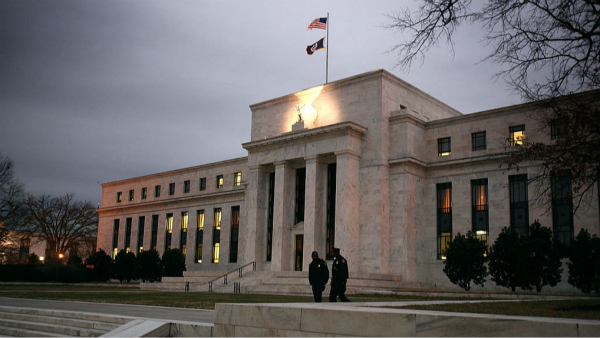A war is being waged against the central banks. Its focus is the policies they adopted in the aftermath of the global financial crisis of 2007-09 and the eurozone crisis that followed, especially quantitative easing or “large-scale asset purchases”. But complaints are also made against negative interest rates and even just low rates. These protests could cripple the ability of central banks to respond effectively to the next recession, let alone another crisis.
一场针对央行的战争已打响。焦点是各大央行在2007年至2009年全球金融危机以及随后的欧元区危机之后采取的政策,特别是量化宽松或“大规模资产购买”政策。但也有人抱怨负利率甚至低利率。这些抗议可能会损害央行对下一场衰退(更不用说另一场危机了)做出有效回应的能力。
This is a concern because short-term interest rates may remain low by historical standards even as they “normalise” in coming years. Inflation is low and long-term real interest rates seem to have become structurally low, too. Short-term rates may not even get to, say, 3 per cent before the next downturn. This would give central banks little room to cut, by historical standards, before finding themselves back at zero. In the US, the Federal Reserve has cut by four percentage points, or more, between cyclical peaks and troughs.
这一点令人担忧是因为,按照历史标准,短期利率可能继续处于低位,即便它们在未来几年“正常化”。通胀较低,长期实际利率似乎也已变得结构性较低。在下次低迷之前,短期利率可能甚至不会达到3%。这将让央行几乎丧失降息的空间(按照历史标准),因为利率很快就会回到零。在美国,美联储(Fed)过去在周期性波峰和波谷之间降息4个百分点或更多。
This does not mean the central banks would, in reality, be out of ammunition. The possibilities are many, as former Fed chairman Ben Bernanke noted in a paper delivered in October at a conference on Rethinking Macroeconomic Policy at the Peterson Institute for International Economics in Washington. But some of the possibilities would be un-popular, perhaps so unpopular as to be politically infeasible.
这并不意味着央行实际上会弹尽粮绝。正如美联储前主席本?伯南克(Ben Bernanke) 10月在华盛顿彼得森国际经济研究所(Peterson Institute for International Economics)举行的“反思宏观经济政策”(Rethinking Macroeconomic Policy)会议上发表的一篇论文中指出的那样,可能性很多。但一些可能性将是不得人心的,甚至可能因此在政治上行不通。
The challenge in such situations is to make achievement of the inflation target credible by indicating both the central bank’s determination and the effectiveness of the means at its disposal. In fact, in trying to stimulate the economy, the central bank has infinite firepower. It could, if it dared, purchase almost everything, including, notably, foreign currency. If its commitment were credible, inflation would follow. The technical difficulty, rather, is calibrating policies successfully. The objections are political, not technical. Some are perfectly reasonable: use of the vast powers of central banks to price and create money must be constrained. But some objections are wrong-headed.
在这样的形势下,挑战在于通过说明央行的决心和央行可动用的现有手段的有效性,让实现通胀目标变得可信。实际上,就刺激经济而言,央行拥有无限的火力。如果有胆量,它可以购买几乎一切,包括(这一点值得注意)外币。如果其承诺是可信的,那么通胀将会跟随。技术上的难点在于成功地校准政策。反对意见是政治上的,而非技术上的。其中一些反对意见非常合理:动用央行为货币定价和制造货币的巨大权力必须受到制约。但另一些反对意见属于执迷不悟。
One is that these policies are “unusual” or “unconventional”. So what? The world economy has evidently been in an unusual state, in which demand matches potential supply only at very low real and nominal interest rates. The long struggle to raise inflation to target in the US and, still more, in the eurozone and Japan, shows that. Equally, the relationship between unemployment and inflation has changed. Unusual conditions demand unusual policies.
其中一种反对意见认为这些政策“不寻常”或“非传统”。那又怎样?全球经济显然正处于不寻常的状态,需求仅在非常低的实际和名义利率水平上与潜在供应匹配。美国将通胀提高到目标水平的长期努力,以及欧元区和日本的更艰苦努力,都说明了这点。同样,失业与通胀之间的关系已发生变化。不寻常的状况需要不寻常的政策。
Another objection is that policies are creating “artificial” prices. Why should the rate of interest that achieves full employment and target inflation — the “neutral”, or “natural” rate — be considered artificial? This criticism assumes that, in the absence of central bank policies, the economy would achieve an equilibrium. But an economy with a modern credit and monetary system is not self-stabilising, in this way.
另一种反对意见认为,政策正带来“人为”价格。为什么实现了完全就业和目标通胀的利率(“中性”或“自然”利率)要被视作人为?这种批评意见假设,经济将在没有央行政策的情况下实现均衡。但一个具备现代信贷和货币体系的经济体,是不会以这种方式实现自我稳定的。
A further objection is that it is unfair to savers that returns are so low. But the view that creditors should be helped, at the expense of debtors and activity in the economy, is just the perspective of a sectional interest against a far broader one.
另一个反对意见是,回报这么低对储户是不公平的。但是这样的观点(债权人应该得到帮助,为此不惜牺牲债务人利益和经济活动)只是出于局部利益的视角,而不是从整体利益出发。
A related criticism is that easy money policies have worsened inequality, especially of wealth. But keeping the post-crisis economy in recession in order to reduce wealth inequality would have been insane. In any case, wealth inequality matters less than inequality of incomes, where the effect of raising asset prices is to lower returns for prospective owners, so improving inequality in the longer term. Above all, the worst form of inequality is to leave millions of people stuck unnecessarily in prolonged unemployment.
一个相关的批评是,宽松货币政策加剧了不平等,尤其是财富不平等。但为了降低财富不平等而让危机后的经济持续衰退将是不理智的。无论如何,财富不平等的重要性不如收入不平等,在后一种情况下,资产价格上升会降低潜在拥有者的回报,从而改善较长期的不平等。最重要的是,最糟糕的不平等形式是让数以百万计的人不必要地陷入长期失业。
Yet another objection is that these policies will destabilise finance. The answer is to adopt policies that are deliberately targeted against financial instability, such as higher capitalisation of banks or less leverage in the economy.
还有一个反对意见是,这些政策将会破坏金融稳定。答案是采取专门防范金融不稳定的政策,比如提高银行资本金要求,或者降低经济中的杠杆。

The most heated objections have been to quantitative easing. At the outset, critics complained it would lead to hyperinflation. When this failed to oc-cur, they just condemned it as somehow unnatural. But use of the central banks’ balance sheet is a natural extension of monetary policy, in exceptional circumstances. It signals an intention to pursue easy monetary policy for a long time and to lower interest rates further up the yield curve. This may be unusual, because circumstances are unusual, but it is not in any way unnatural.
最激烈的反对意见是针对量化宽松政策的。刚开始,批评人士抱怨说,它将会导致恶性通胀。当这种情况没有发生的时候,他们只是谴责说,这有些不自然。但在特殊情况下,使用央行的资产负债表是货币政策的自然延伸。它说明了央行有意长期推行宽松货币政策,压低收益率曲线更上方的利率。这可能不寻常,因为情况就是不寻常的,但它绝不是不自然的。
Such complaints against the successful actions of central banks are not harmless. They are intended to force premature tightening now and, more important, to clip the wings of central banks in future. But, given the instability of finance, today’s low neutral interest rates and the unwillingness of governments to use fiscal policy, the willingness of central banks to adopt unconventional policies may be all we have to manage the next big downturn.
对央行成功举措的这类抱怨并非是无害的。它们的目的是迫使央行过早收紧政策,而且更重要的是制约央行未来的行动自由。但是,鉴于金融不稳定、当今中性利率偏低以及政府不愿意使用财政政策,央行推行非常规政策的意愿,也许是我们应对下一场重大低迷的唯一指望。
Preventing them from acting, perhaps by limiting their independence, would be a grave, possibly a disastrous, blunder.
阻止他们采取行动——或许是通过限制他们的独立性——将是一个严重的、甚至灾难性的愚蠢失误。













